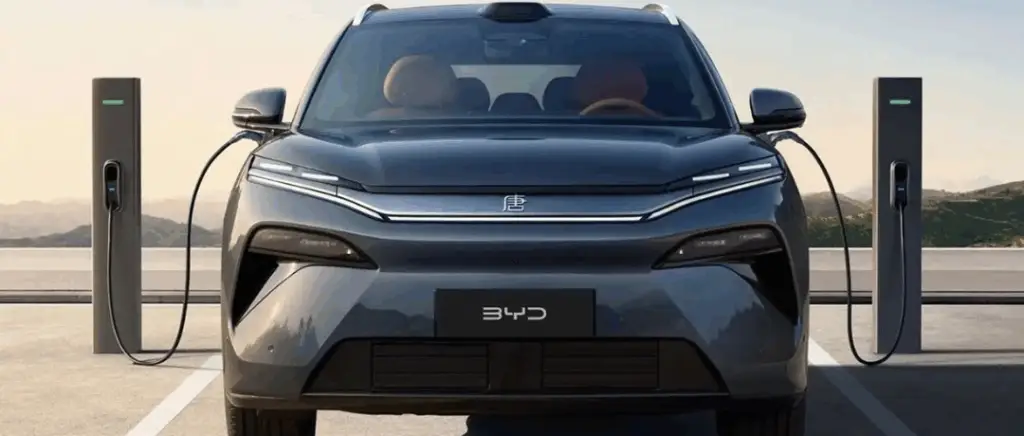Monday to Friday
9am - 12.30pm - 2pm - 7pm
Why install charging stations in local authorities?
Environmental and economic benefits
Reducing CO2 emissions
The installation of charging points for electric vehicles in local authorities has a significant impact on the environment. By facilitating the adoption of electric vehicles, these infrastructures contribute directly to reducing CO2 emissions. On average, an electric vehicle emits 2 to 3 times less CO2 than a car. thermal vehicle throughout its life cycle.
In France, the transport sector is responsible for almost 30 % of greenhouse gas emissions. By encouraging the use of electric vehicles through accessible charging points, local authorities can substantially reduce these emissions. For example, the installation of 100 charging points could prevent the emission of more than 500 tonnes of CO2 per year.
Promoting sustainable mobility
Public charging points are a key element in promoting sustainable mobility. By offering practical recharging solutions, local authorities encourage citizens to opt for electric vehicles, thereby reducing dependence on fossil fuels. This change encourages more rational and sustainable use of local energy resources.
Economic benefits for local authorities
Investing in electric vehicle charging infrastructure also has economic benefits for local authorities. Firstly, these charging points attract a new category of visitors and tourists, which can boost the local economy. Local authorities that invest in charging points report an increase in local economic activity of between 5 and 10 %.
What's more, local authorities can benefit from a range of grants and subsidies for the installation of these infrastructures. The ADVENIR programmefor example, offers grants covering up to 50 % of the cost of installing charging points. These grants make the initial investment more affordable and enable local authorities to make savings in the long term.
Contributing to energy independence
By increasing the number of electric vehicles on the road, local authorities are helping to reduce dependence on imported fossil fuels. This transition to electric mobility is part of the national energy transition strategy, which aims to increase the use of renewable energies and strengthen France's energy independence.
Installing charging points for electric vehicles in local authorities therefore offers a number of environmental and economic advantages. By reducing CO2 emissions, promoting sustainable mobility and stimulating the local economy, these infrastructures play an essential role in the energy transition and sustainable development of local areas.
Attractiveness and service to citizens
The installation of charging points for electric vehicles in local authorities is an essential service to meet the growing expectations of citizens in terms of sustainable mobility, enhancement of the local area and the public service expected:
- Making it easier to get aroundBy offering public charging points, local authorities are making it easier for their citizens to recharge their electric vehicles.
- Encouraging the adoption of electric vehiclesThe easier it is to recharge an electric vehicle, the more likely people are to buy one.
- Image of innovationCities equipped with charging points are perceived as more modern, which can attract new residents and investors.
- Increased economic activityThe charging points attract electric vehicle users to the area, increasing traffic to local shops and tourist attractions.
- Attracting businessBy offering this service, local authorities can attract innovative businesses and create local jobs.
Read also => Installing a recharging point in a company: opportunities and available financial aid
Key stages in the installation of charging points
Planning and feasibility study
It is essential to start with an accurate assessment of the demand for charging points. This assessment should take into account the current and future number of electric vehicles in the area. It is recommended that there should be one charging point for every 10 electric vehicles. Charging points should be installed in strategic locations (town centres, shopping areas, public car parks, close to public transport). Good geographical distribution is essential to maximise the use of charging points. European guidelines recommend a coherent network to ensure easy access for all users.
Before installation, it is crucial to check the capacity of the existing electrical infrastructure to support the charging stations. This includes an analysis of the site's distribution networks and electrical installation. An in-depth technical study can also determine whether any upgrades or modifications are required. Establishing an accurate budget is fundamental. Costs include :
- the purchase of the terminals,
- installation of the terminals,
- electrical connection work,
- maintenance costs.
Local authorities have to choose between different charging station options, including slow (less than 22 kW), fast (up to 50 kW) and ultra-fast (more than 50 kW) charging stations. The choice will depend on the intended use and frequency of use of the sites.
Finally, it is important to engage local stakeholders, including businesses, residents and network operators. Active consultation ensures that projects meet local needs and have community support.
Installation and management of terminals
Modern charging stations are often equipped with remote management systems that allow them to be monitored in real time. These systems facilitate preventive maintenance and enable faults to be diagnosed quickly. They also offer features such as charging session management and integration with online payment systems. To ensure the durability of the infrastructure, it is essential to put in place a regular maintenance plan (periodic inspections, software updates, repair and/or replacement of faulty equipment).
In terms of user and service management, local authorities need to provide an effective customer service to support users of charging points. This can include telephone support, user guides available on-site or online, and mobile applications to locate available charging points. Good customer service improves the user experience and encourages the adoption of electric mobility. Managing charging points also includes defining a pricing policy. Local authorities can choose to charge per kWh, per duration of use, or offer free charging to encourage the uptake of electric vehicles. A well-defined charging policy helps to cover maintenance and operating costs while offering an attractive service to users.
Funding and support for the installation of charging points
The Advenir programme
The Advenir programme, which is crucial to supporting the installation of electric vehicle charging points in France, is changing in 2024. These changes bring new opportunities for businesses, while reflecting the country's energy transition objectives.
From 30 June 2023, the Advenir programme has tightened its eligibility criteria, now focusing exclusively on automotive services and short-term vehicle rental companies. This decision targets key sectors for accelerating the uptake of electric mobility in France:
For car service professionals, the amount of the premium varies according to the use of the recharging points:
- For fleets and employees: cover of 25 % of costs excluding tax, capped at €750 per recharging point.
- For points open to the public: a subsidy of 50 % of the costs, with a ceiling varying between €1,700 and €7,500 depending on the power.
- For short-term rental companies, the premium represents 20 % of the cost excluding tax, limited to €600 per recharging point.
In addition, the scheme has been extended to include a subsidy for the installation of charging points for heavy goods vehicles, covering 50 % of the costs, with a ceiling ranging from €2,200 to €960,000 depending on the power. In addition, the benefits in kind linked to the provision of electric vehicles and charging points by the employer have been extended until 31 December 2024.
The end of the programme Recharging point open to the public in a private car park
The "Charging point open to the public in private car parks" programme will no longer be maintained in 2024. As of 30 June 2023, Advenir will no longer support projects for the installation of recharging points in private car parks open to the general public, and any premium application not signed by this date will not be covered by the programme.
Public-private partnerships
Public-private partnerships (PPPs) play a crucial role in the financing and installation of charging points for electric vehicles. These partnerships make it possible to pool resources, share risks and speed up the deployment of the necessary infrastructure.
What are the advantages of public-private partnerships?
- Cost sharing PPPs enable the costs of installing and maintaining charging points to be shared between local authorities and private companies.
- Access to technical expertise : private companies contribute their technical expertise and experience in managing complex projects.
- Accelerating completion times: Thanks to the flexibility and efficiency of the private sector, charging point projects can be rolled out more quickly.
Notable examples of public-private partnerships include the collaboration between the City of Paris and TotalEnergies to deploy more than 2,300 charging points, where TotalEnergies manages maintenance and Paris facilitates authorisations. Greater Lyon has also entered into a partnership with EDF to develop a dense network of charging points, with EDF providing technical expertise and the city supplying the sites. Finally, the Provence-Alpes-Côte d'Azur region and Enedis have worked together to install charging stations in rural areas, with Enedis providing the connection and the region funding the project, thereby reducing disparities in access to charging.
Conclusion
The installation of public charging points is essential to support electric mobility and the energy transition. By investing in this infrastructure, local authorities are improving the quality of life of their citizens and enhancing the value of their area. Public-private partnerships enable costs to be shared and projects to be accelerated. The market for charging points in France has grown significantly, demonstrating the growing importance of these initiatives. Careful planning and effective management are therefore crucial to success.
If you would like to find out more about the tax credit for in-car charging points 2024For more information, see our article on this subject.
































